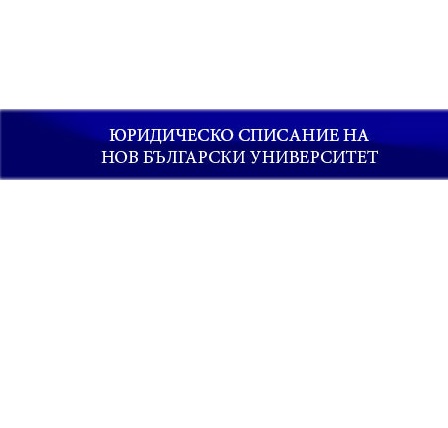Интелектуални и волеви моменти на вменяемостта според българското наказателно право
Intelectual and volitional aspects of sanity pursuant to Bulgarian criminal law
Author(s): Jivko VelchevSubject(s): Social Sciences, Education, Law, Constitution, Jurisprudence, Criminal Law, Civil Law, Sociology, Higher Education , Criminology
Published by: Нов български университет
Keywords: Criminal law; Sanity pursuant; Intelectual and volitional ability
Summary/Abstract: It has been assumed in criminal law doctrine that the concept of sanity is formed as the ability of the perpetrator to understand the nature and significance of his/her acts, to regulate his/her behaviour at the time of committing the offence. That is, sanity is related to the totality of intellectual and volitional mental abilities, to part of the capacity of the mind of the subject, to his/her mental potential. These necessary abilities are to some extent “encoded” in art. 31 and art. 33 of the Criminal Code (CC) instead of being specified directly and clearly. There is a necessity of contemporary analysis and decoding of their hidden contents. In the current form, there is no chance for their unambiguous and doubtless interpretation. The introduction of the necessary changes in this respect will virtually allow that timely and exact conclusions about the presence of lack of sanity are reached before the very search of answers to the other important issues related to the investigation. In this article, having performed criminal law analysis, the author reached the following conclusions: 1. The intellectual ability to understand the nature of what was committed means that the perpetrator of the act had the idea of the causality existing in the objective reality, was aware of the factual effect of his/her actions, i.e., (s)he has the intellectual ability to predict the factual consequences which (s)he caused by this type of activity to which the particular act belongs. 2. The intellectual ability to understand the significant of his/her act means that the perpetrator of the offence should have two intellects: a) to realize the public impact of the act, to be aware of its sociological aspect; b) to realize the negative public appreciation of such a type of complex of acts to which the particular committed one belongs and the consequences resulting from it; c) to realize that the act committed by him/her has harm-causing nature, it prejudices some interests, that it deserves a negative public opinion, that it is anti-social and not that something of public benefit or a neutral one is being done; and d) the person had the intellectual abilities to understand the public-danger nature of the act. 3. The third mental ability constituting sanity is characterized by the strong will of the perpetrator, by his/her volitional abilities for refraining from committing the offence. In this case, sanity, as a term of criminal law, should not be mixed up with the legal capacity known in civil law where “to control one’s acts” means to “take care of one’s affairs”. In view of the arising of criminal responsibility, no sign of equality should be put between those two terms. The volitional ability of the sane person to control his/her acts means that the perpetrator of the public-danger and harm-causing act has an option, an alternative to his/her criminal behaviour, that (s)he had a choice in the bevahiour and in this view, the free will to choose an option from the alternative – to perform criminal or noncriminal behaviour. The sane persons could refrain from committing an offence. In spite of the fact that he is able to specify counter-arguments to those who compelled him/her to commit the offence, (s)he still chose to commit it. “(S)he could control” corresponds to the freedom of will in its legal sense. And vice versa, when the person was not able to control his/her acts, i.e. when there was a lack of sanity, this means that (s)he could not refrain from committing the harmcausing violation or the person had no other option of bevahiour besides the one (s)he performed as harm-causing violation. In this view, his/her mind is much closer to that of animals that to the one of a human being.
Journal: Юридическо списание на Нов български университет
- Issue Year: 2013
- Issue No: 3
- Page Range: 23-44
- Page Count: 22
- Language: Bulgarian

